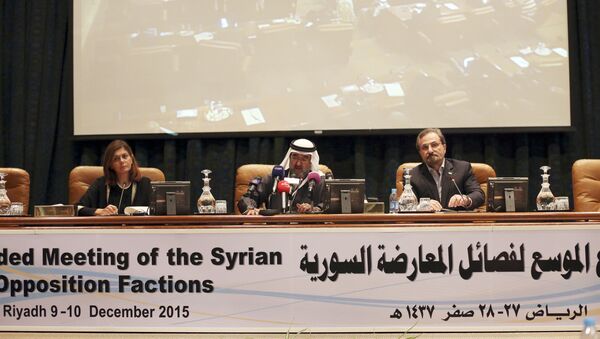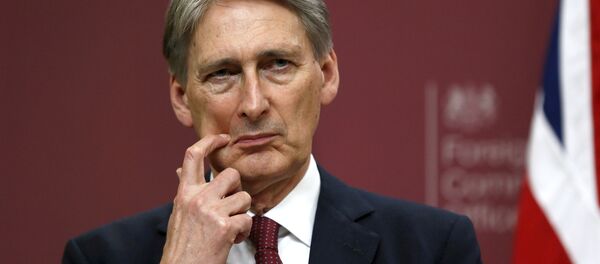Speaking to Russia's RIA Novosti on Friday, Kassis said that many of the opposition groups which attended the three-day conference on Syrian settlement in Riyadh earlier this week are entirely dependent on foreign governments.
Saudi Arabia invited over a hundred representatives from Syria's political and militant opposition groups to Riyadh in order to try and unite some of them. Several groups, including the Free Syrian Army, were critical of the makeup of the conference, suggesting that the opposition has no place for terrorists.
Commenting on the conference, Kassis said that it would be unrealistic to expect the Syrian government to negotiate with the opposition groups who were present. "Let's be clear. Everyone who went to the conference in Riyadh is dependent on certain foreign governments, including Saudi Arabia, Turkey and Qatar. In this regard, they cannot create their own independent group. Secondly, it is no secret that the conference was attended by representatives from Ahrar al-Sham, a terrorist group associated with al-Qaeda."
Therefore, she suggested, "it would be unrealistic to see them negotiating with the Syrian government."
The leader of the moderate Syrian opposition group suggested that by holding such a conference, Saudi Arabia was in fact "trying to impose its own version of a political solution in Syria."
Kassis is convinced that the countries propping up opposition groups in Syria, including Saudi Arabia, "can only expand the presence of terrorism, and extend the war in Syria; moreover, they are capable of supporting terrorist groups, but they are not able to implement a policy to resolve the crisis."
Last month, the participants of the international meeting on Syria in Vienna agreed that the next round of talks between the government and the opposition would take place before January 1, 2016. The participants of the Vienna meeting agreed that the Syrian government and opposition should agree on a national unity government, and hold elections within 18 months under a new constitution. UN Special Envoy on Syria Staffan de Mistura said that the Vienna negotiators would help the Syrian opposition form a delegation for talks with the government.






